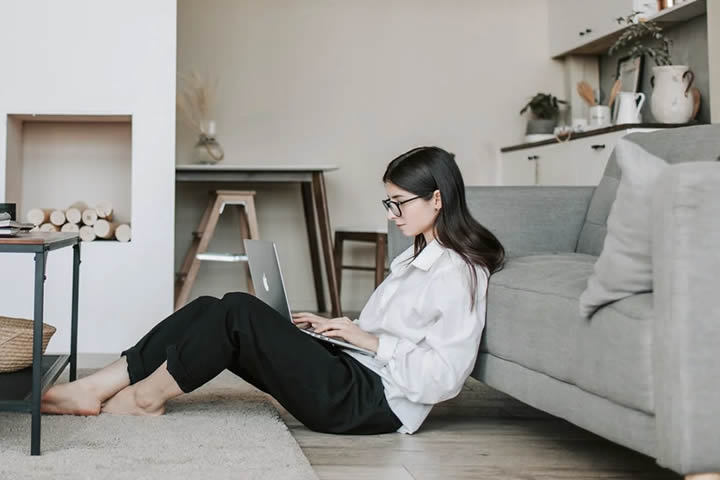
You may have heard of “tech neck,” but what about “quarantine neck?”
According to a recent survey in the UK, over half of the respondents complained of new neck and back pain due to working from home. While some people are fortunate to have home offices and proper equipment, many are sitting on the couch and bent over laptops. Over time this can begin to impact your health. There is a natural curve at the spine’s cervical and lumbar regions that changes depending upon our posture and activities. When you force yourself to work in an uncomfortable position for too long, however, this curve can become flattened and lead to pain and discomfort in the lower back and neck. Poor posture can also lead to more severe problems, including bulging discs, nerve pain, and degenerative disc disease. Even sitting up straight or remaining in one position is not recommended. It helps to change your posture throughout the day.
How to Avoid Quarantine Neck
- Pay attention to your posture and neck position.
When we look down at our laptops or other devices, our necks are usually bent forward. As this tilt increases, so does the weight and strain placed on our neck and spine. During this on-going quarantine period consider raising your monitor to reduce the angle of your neck and maintain good posture or even setting up a more ergonomic home office. - Use a headrest.
Sitting in a chair with a headrest and maintaining contact with the headrest can help you avoid flexing your neck forward. - Take frequent breaks.
Step away from your computer or put your device down for at least two or three minutes every half hour. - Listen to your body.
If it hurts, stop. Persistent or worsening pain or pain that moves from the neck into the arms should be a “red flag” and may require medical attention.
The information provided on this website should not be used to diagnose or treat any medical condition and is not meant to take the place of professional medical advice. If you think you have a medical problem, please seek the advice of a physician. Call 911 for all medical emergencies.